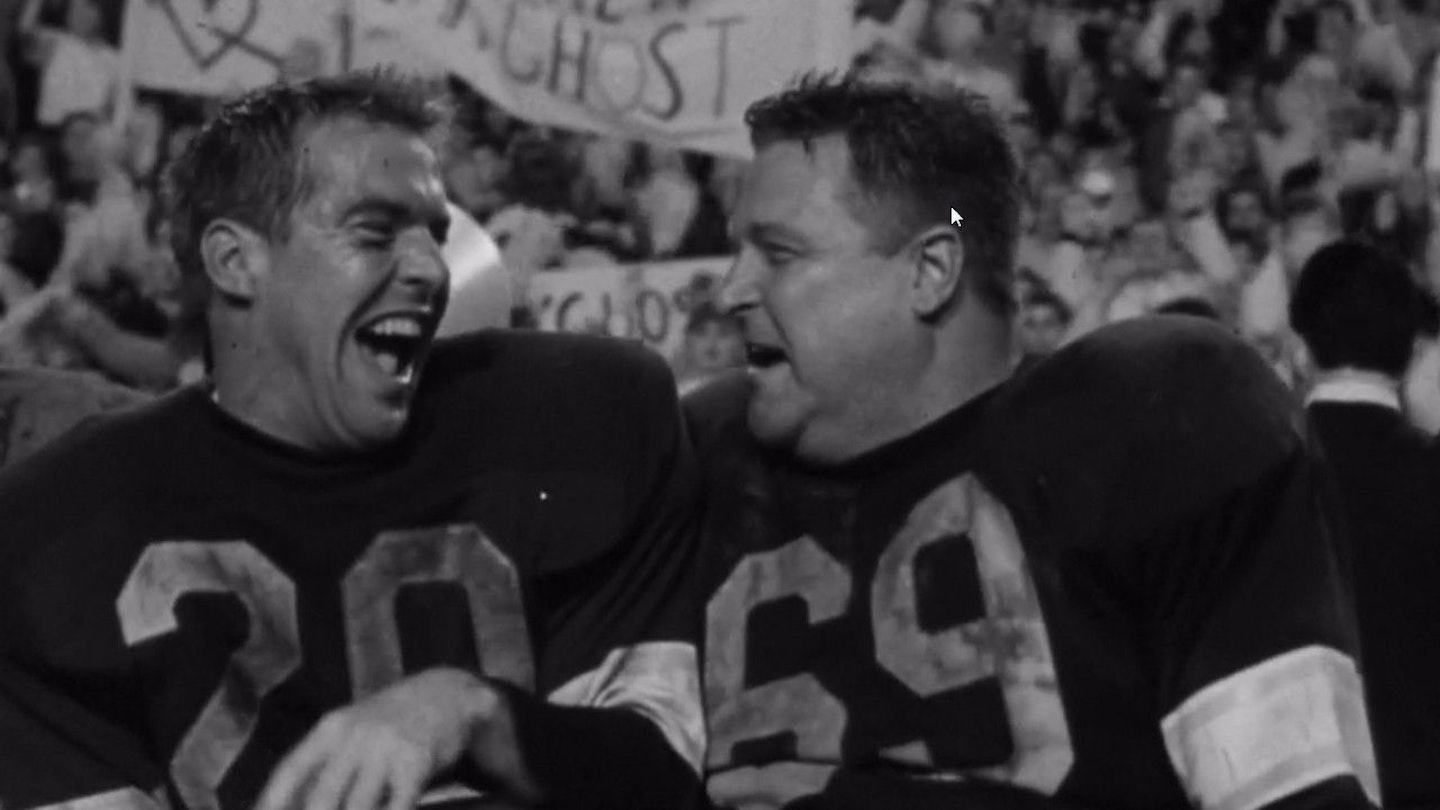This bittersweet romantic saga is no more a football movie than Field Of Dreams is about baseball. It flopped at the American box office, yet at a reported budget of $25 million and with the star names and lavish production values of a blockbuster, Hackfords film appears to have everything going for it. After all, Tom Rickmans script had been described as one of the ten best unproduced screenplays of all time and Hackford himself had previously scored with another love story, An Officer And A Gentleman.
The commercial failure of the film is perhaps due to the fact that it does its job so well. There are no second acts in American lives, observed F. Scott Fitzgerald in The Last Tycoon. Indeed the story of Grey, a college football hero, and his teenage sweetheart, Babs picks up where An Officer And A Gentleman leaves off. The couple begin the story hopelessly in love in the mid-50s. Grey is an adored college football hero, better known as The Grey Ghost and Babs is a Southern belle, honoured as the Magnolia Queen at a beauty pageant. Im majoring in Gavin and me, Babs tells Gavins nephew and close friend, Donnie Hutton, and the couple seem to represent everything bold and free in young America.
Soon Gavin and Babs are married, surrounded by children and The Grey Ghost is playing football for a living. Their marriage is set against the backdrop of a South moving into the Civil Rights era and yet Hackford manages to both undercut Greys growing attachment to his innocent past as well as endorsing the notion that heroes were somehow simpler then. As Babs emerges as a strong businesswoman and family leader, the Grey Ghosts career draws to a close and he finds himself trading off his former glories while selling artificial turf.
"We wont vanish, well all just get older, Babs tells Donnie as he prepares to leave the South to become a college professor. Like Nick Carraway in The Great Gatsby, Donnie is the go-between through whom we see the central relationship and who brings out a side of Babs that merely threatens Quaids belligerent masculinity.
If the film is weakened somewhat by its attempt to match the couples marriage to 25 years of American history, it is a brave failing, somewhat compounded by the fact that it sometimes seems to have been shot like a TV movie. The cast are all excellent with John Goodman in riveting form as the college friend who scuppers Grey with gambling debts. Only the final scene lapses into the sentimentality that the rest of the movie puts under the microscope, but it is a human lapse which Hackford works hard to justify. History may bear down on Quaid and Lange but their struggles to move with the times and accept their fate amount to a moving study of what it must have been like to live with a heroic legacy as youth and the certainties of the 50s just faded away.
